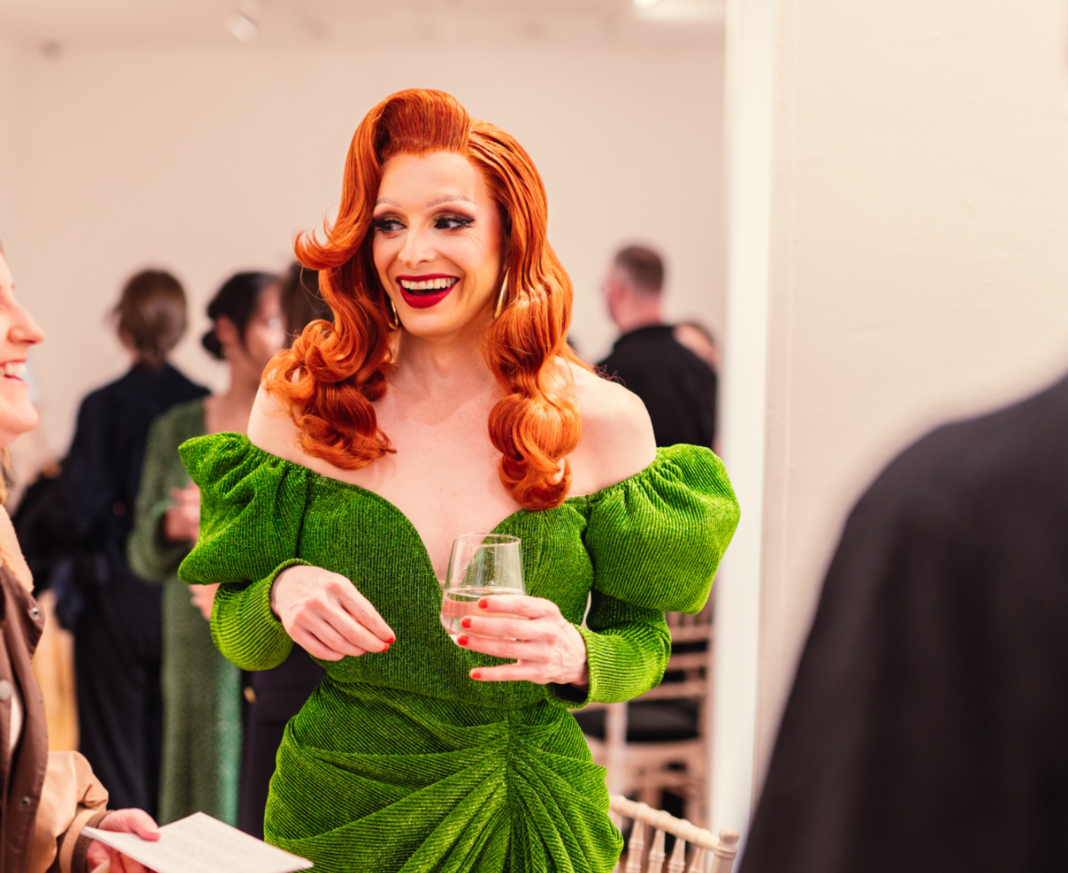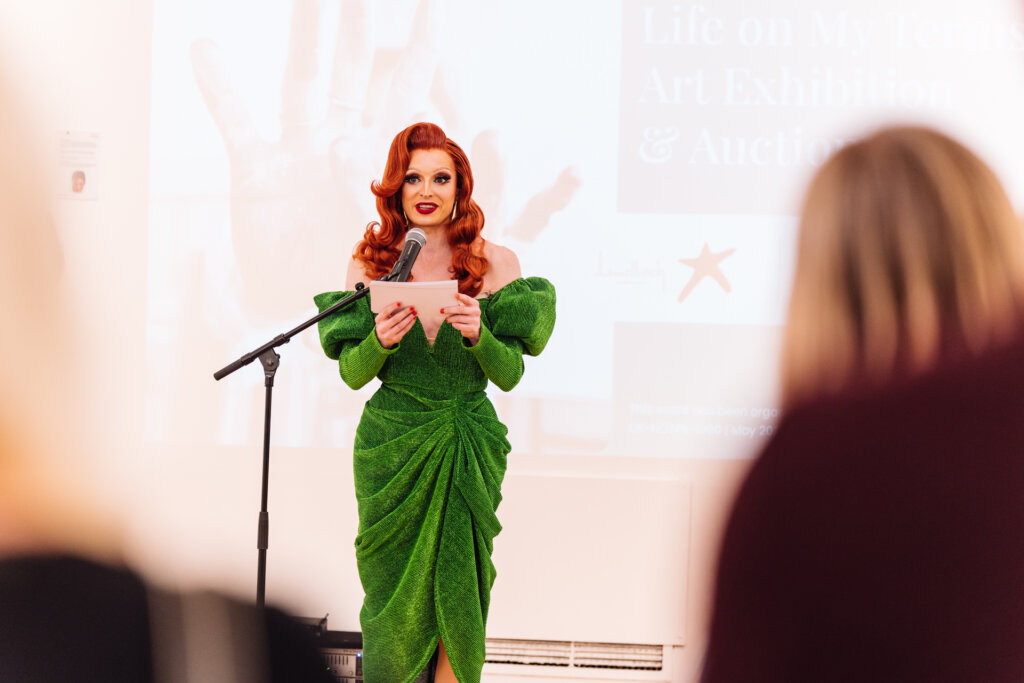
Interview with Veronica Green
“Without voicing what I was going through, I wouldn’t have had the conversations that led me to realise I was even going through depression” – RuPaul’s Drag Race UK star Veronica Green discusses her personal experiences of depression, creativity and her hopes for the future

After working closely with Veronica Green on Series 2 of the Mind If I Join You? podcast and the Life on My Terms Art Exhibition and Auction, we at Lundbeck wanted to take the opportunity to sit down with her and talk more about her life over the past few years. Veronica famously opened up about her mental health struggles during the pandemic and shared her story on RuPaul’s Drag Race UK, which led to her becoming a vocal mental health advocate.
Take us back to that moment on Drag Race UK when you lifted the lid on your mental health. What motivated you to speak so openly and honestly?
When Season 2 of RuPaul’s Drag Race UK was cut short for me, due to me contracting Covid-19, I lost all of my work, fell into uncontrollable debt and found it almost impossible to get out of bed. I was unaware at just how ill I’d become, even when most of each day I was sat in bed simply staring at the walls. The first-time depression was mentioned, it wasn’t even by me. A psychotherapist from the show suggested it to me after I explained I hadn’t left the house for 12 weeks, I wasn’t keeping up with personal hygiene and wasn’t participating in my favourite hobby, gaming.
Without voicing what I was going through, I wouldn’t have had the conversations that led me to realise I was even going through depression. My loved ones would not be able to assist me to rebuild myself into a stronger person and ultimately, I would not have learnt how to recognise, manage and overcome my own struggles. Through talking openly about my depression, I’m now better equipped to deal with any reoccurring mental health struggles that I may face today and more importantly, if sharing my story connects with people and inspires conversations or helps anyone with their own mental health, then that’s a win in my eyes.
Other than speaking openly, what else has helped in your mental health journey?
Creativity was a key factor to overcoming my mental health struggles. As I’m sure you’ll appreciate, as a Drag Performer, I live and breathe my art – it’s part of who I am. I love the transformation, I love the wigs, makeup and sometimes even the costumes I wear are my own creations. I write stories, love to sing, dance and act.
Creating art and entertaining others is what I was born to do. Creativity is good for my mental health. I create art to entertain because it makes me happy and doing things that make me happy are a key to my happiness. It sounds cliché when put so simply, but I’ve found it to be the best source of happiness there is. I do things that make me happy and happiness finds me. During 2020, I was not doing things that made me happy, in fact, I wasn’t doing anything.
Tell us about your experience of making Series 2 of Mind If I Join You? Did you learn anything new about yourself?
I really enjoyed recording the podcast series – it was the first time I’d done anything like that, and I learnt so much from John and all of our expert guests. There was a revelation in every episode – from reflecting on an employer’s responsibilities for mental health provision with Claire from Mental Health UK to how nutrition can affect our brain health with Renee McGregor. The conker tree I planted when recording the episodes continues to flourish and I see it as a bit of a metaphor for my improved understanding of myself and my mental health journey.
Finally, can you reflect on the Life on My Terms Art Exhibition and Auction? What did it mean to you to see other people who have lived experience of mental health conditions expressing themselves through artwork?
I often tell people that going through depression felt like I’d been broken into hundreds of tiny jigsaw pieces, scattered all over the floor and that my recovery from it through art and creativity was like picking up each little piece, putting myself back together. It took a long time but every time I’d get into drag, every time I’d go on stage and every time I’d be creative, a small piece of me would come back. It was amazing to see the artwork from people who had been going through a similar experience to me and how art and creativity had allowed them to put their own jigsaws back together.
